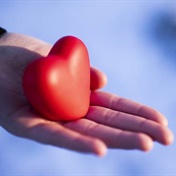The search for a safe remedy for menopausal hot flushes has been foiled again, with flaxseed the latest in a long line of compounds that apparently don't reduce the incidence of the unpleasant symptoms.
Researchers report that a daily flaxseed bar was no more effective than a placebo in helping with hot flushes in women with or without breast cancer.
"It's unfortunate because these are such common problems, not just in breast cancer survivors but in postmenopausal women in general," said Dr. Joanne E. Mortimer, director of women's cancers programmes at City of Hope Cancer Center in Duarte, California. "These poor women have one less option." Mortimer was not involved with the study.
Hot flushes often occur in breast cancer patients who have undergone hormonal treatment for their tumours as well as in women going through normal menopause.
Oestrogen therapy and menopause
"Women who are taking endocrine [hormone] therapy and have significant side effects may be less likely to be adherent to treatment, and that leads to worse outcomes," said Dr Erica L. Mayer, a breast oncologist with Dana Farber Cancer Institute in Boston, who also was not involved with the new research.
Oestrogen therapy has been shown to be effective in reducing the incidence of hot flashes but not without a hefty health cost, including a heightened risk of stroke and blood clots.
Flaxseed contains lignans, which can work against oestrogen.
"Anecdotally it [flaxseed] has been thought to improve hot flashes and they [the researchers behind the new study] had some pilot data from a non-randomised trial that women who took flaxseed had decreased hot flashes," said Mayer. "That led to the current trial."
For the new study, almost 200 postmenopausal women who reported having at least 28 hot flashes a week were randomly selected to receive either a placebo or a daily flaxseed bar for six weeks.
About half of the women had had breast cancer and half had not.
Although both groups of women reported declines in the number of hot flashes they were experiencing, that number was about the same in each group, with about a third in each group reporting a 50% reduction in symptoms.
There were also side effects in both groups, namely bloating, diarrhoea and nausea, most likely due to the fibre in the placebo and flaxseed bars, said study author Sandhya Pruthi, an associate professor of medicine at the Mayo Clinic in Rochester, Minn.
"This is a much more complex brain process that we need to understand," said Mortimer. "Negative studies like this [should] spur us on to find the biological mechanisms behind this [hot flashes]. Right now, we don't even know the mechanisms."
Various antidepressants such as Effexor and Zoloft have been shown to be effective against hot flashes, as has acupuncture, said Mayer.
Still, she added, "This is a disappointing study in that it didn't confirm what we had previously seen, but it supports further high-quality, ongoing research to identify agents which are well-tolerated, acceptable to patients and effective in reducing hot flashes so they can stay on therapy and have better breast cancer outcomes."
(Copyright © 2010 HealthDay. All rights reserved.)




 Publications
Publications
 Partners
Partners















